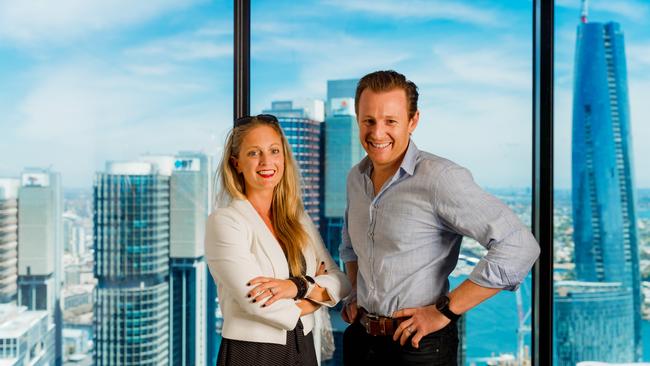International Women’s Day isn’t good enough

This occurred because a series of brave women took it upon themselves to speak out on these devastating events. Even as their voices shook. Even as they endured further abuse, and risked further trauma for taking a stand.
Grace Tame, a sexual assault survivor awarded Australian of the Year for her campaign to change Tasmanian victim silencing laws, criticised PM Scott Morrison and his Government’s response to accusations of rape against MP Christian Porter.
Chanel Contos, another sexual assault survivor, started an online petition that uncovered a veritable epidemic of sexual misconduct committed by members of many Australian private boys high schools.
These women are incredibly brave and their actions will have lasting impact.
But we do not have to take incredible and game-changing stances like Grace and Chanel to help change the game ourselves.
The sexist behaviours women face sit along a spectrum that range from basic disrespect and belittling at one end, all the way through to sexual assault, rape, and murder at the other.
Every day, both men and women are confronted with multiple opportunities to influence behaviours all the way along this spectrum. And not just on International Women’s Day each year.
We can all carry this energy into our everyday interactions and spaces. Not just once each year. Every day. All the time.
At every level, we all have the power to engage regardless of gender, position, or life stage, due to two critical tools we all have at our disposal.
Our circle of control and our circle of influence
Our “circle of control” encompasses all of the small and large moments we face on a daily basis over which we have autonomy.
These might include how we divide domestic responsibilities at home, our recruitment and advancement policies and processes at work, or the way we interact with friends and strangers in social settings.
Within the innovation ecosystem, we might consider the ways our particular talents can be used to uplift women founders and staff through the investment of our capital, by providing access to our networks, or by raising voices that may otherwise be quiet.
At Third Hemisphere, and in our other businesses and investment activities, we support many companies that are improving inclusivity, including commercial and social outcomes for women.
This is also an example of how we can involve our “circle of influence” in this pursuit, which includes those in our personal and professional lives who place weight, and may act, on our opinion.
Leaning into and engaging with communities is at the core of change, whether we look to our clients, colleagues, friends, schools, or local businesses.
Absolutely anyone can do it, but for those of us in the technology, finance, or media industries, our circles of control and influence are amplified and accelerated significantly.
This creates a multiplier effect, as everyone we and our businesses touch has the ability to take direct action in their own lives (circle of control) and also to influence others we may never reach directly (circle of influence).
When it comes to gender inequality, this is especially important if you are a man with the power to influence other men.
There are three key reasons for this. Firstly, more men than women currently occupy positions of authority and leadership from which to more safely influence.
Secondly, when men speak out, they tend to be attacked far less than women. Even when they say the exact same thing.
We have experimented with this phenomenon on multiple occasions in various settings, with Hannah being pilloried for saying the exact same thing that Jeremy is praised for, or the tone of rebuke softening or disappearing entirely the moment Jeremy enters the conversations.
Finally, taking a public and critical stand on gender issues can be utterly exhausting, and even dehumanising, for women. It’s not just an intellectual exercise for women. It is their lived, and often traumatic, experiences being cross-examined and disbelieved.
This can trigger the pain of serious traumas such as sexual assault, domestic violence, and sustained workplace discrimination. It also often adds to the already significant weight of a constant onslaught of sexist microaggressions and pervasive institutional and subconscious biases that wear down women on a daily basis.
These are just a few reasons why men must take up the mantle alongside women.
Building a community of allies
This time last year, we both found ourselves accidentally embroiled in a heated online debate on sexism in the technology industry.
The debate itself raged on for months and became the standard exhausting, dehumanising, and infuriating affair for the women involved.
But something beautiful happened behind the scenes.
Dozens of women (and men) in tech reached out to one another in solidarity, sharing war stories and tagging themselves in and out of discussion when it became too triggering, emotionally laborious, or draining.
Friendships were formed and this new community has since found ways to support each other both personally and professionally.
Taken consistently over time, by an ever-increasing movement of people, these types of actions wield powerful results. Not just on one day. On every day.
Hannah Moreno and Jeremy Liddle are directors of tech & finance PR firm Third Hemisphere



Over recent weeks, a series of sexual assaults committed against women by men in privileged positions have – once again – been thrust into the spotlight.